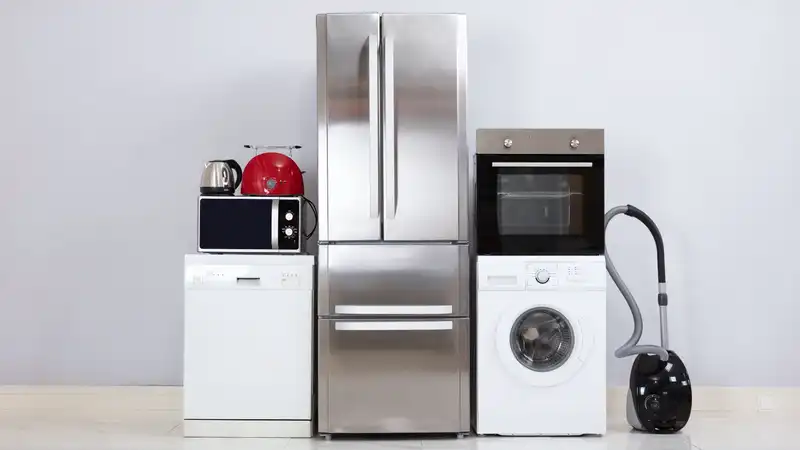When it comes to cleaning appliances, we tend to start with the visibly dirty ones Often, cleaning oil-stained fryers, juicers, ovens, etc is the first priority
However, there are some appliances that we use regularly that should be cleaned but actually are not And given their regular use, these can easily be one of the pesky things you forget to clean around the house What is it exactly?
If you think it's probably an oven covered in grease, you're wrong Surprisingly, the dishwasher is the dirtiest appliance in the house A study conducted by Domestic & General in the UK revealed that dishwashers are the most unsanitary appliances
These findings came after tests were conducted to determine the cleanliness of a variety of household items, including washing machines, ovens, laundry baskets, trash cans, and even toilets After these items were smeared with dip slides (a method of detecting bacteria in liquids), the tests were incubated for 24 hours to determine the level of bacteria generated
Infection/bacteria level scores were measured using a scale between a low of 04 and a huge 250 The results showed that dishwashers topped the list with a score of 135 out of 250, followed by washing machines with a score of 74, and trash cans at the bottom with a score of 665 out of 250 This means that dishwashers harbor more bacteria and germs than trash cans Of course, this also highlights the fact that many people do not deep clean their dishwashers often enough or at all
Knowing how to clean your dishwasher regularly is essential to its maintenance Every time a dishwasher is used, over time, food debris builds up in the filter, and soap scum and grease build up, making it more susceptible to bacterial growth In addition, regular cleaning will help prevent odors, improve the dishwasher's performance, and make it last longer
If you have the best dishwasher and want to keep it in good condition, there are a few simple things you can do In this issue, we talk to Ian Palmersmith, appliance repair manager at Domestic & General, for his top tips on how to effectively clean your dishwasher
1 Accumulation of food debris, dirt, and spills can make the cycle unsanitary, damage parts, and in the worst case, result in expensive repair bills Therefore, it is effective to remove any remaining debris after each cycle
"Dishwashers can last up to 10 years, but only if they are maintained and cleaned regularly," Palmer-Smith states
"A good rule of thumb is to clean it every day After each use, remove excess material from the filter and surrounding area This will help prevent buildup and clogging2 Don't forget to clean the filter
Along with cleaning the dishwasher inside and out, many people forget to clean the filter The filter can easily become clogged with food and unpleasant odors 'If you find that your dishes aren't getting clean, look at the filter first Bad smells, dirty dishes, and gurgling noises are all warning signs that the filter is clogged
To clean the filter, simply remove it from the appliance, empty it, rinse it out, and scrub it with an old toothbrush This way, food debris is less likely to remain in the filter and your dishes will always be shiny"
If you see cloudy water in the bottom of your dishwasher, check out how to unclog your dishwasher
3 Use dishwasher salt
Dishwasher salt is essential to soften the water, reduce calcification of dishes, and get better cleaning results If you live in an area with hard water, you will need to use dishwasher salt to soften the water Without dishwasher salt, hard water can leave a crusty limescale in the filter that can damage the mechanism over time "
Top tips to get the most out of your dishwasher, you need to know how to make your dishwasher last longer and require fewer repairs
4 Deep Cleaning with White Vinegar
Deep cleaning your dishwasher involves thoroughly scrubbing the unit with a damp microfiber cloth as well as cleaning the interior racks and accessories If you don't want to use harmful chemicals, white vinegar is an excellent natural cleaner, along with baking soda
"White vinegar is also great for giving your dishwasher a deeper clean Fill a small cup with vinegar and place it firmly on the top rack Then, run the dishwasher on empty and let the vinegar do its magic
White vinegar is acidic and can damage dishes Repeating this every three to four months will keep the equipment running well and minimize the need for dishwasher repairs"
In fact, white vinegar can be used in the washing machine as well Here are some reasons why vinegar should be used in laundry However, avoid the seven things you should never clean with white vinegar
5 If you notice a musty smell, leave the dishwasher door open after use
6 "Leave the dishwasher door open for at least one hour after running the cycle Leaving the door closed creates a warm, moist environment that is perfect for mold to grow If mold does develop, use bleach to remove it However, if you are using a stainless steel dishwasher, choose a bleach-free detergent to avoid damaging the appliance
"Keeping the door open will also prevent unpleasant odors from developing If you want to address existing odors, a sprinkle of bicarbonate of soda before cycling will help










Comments